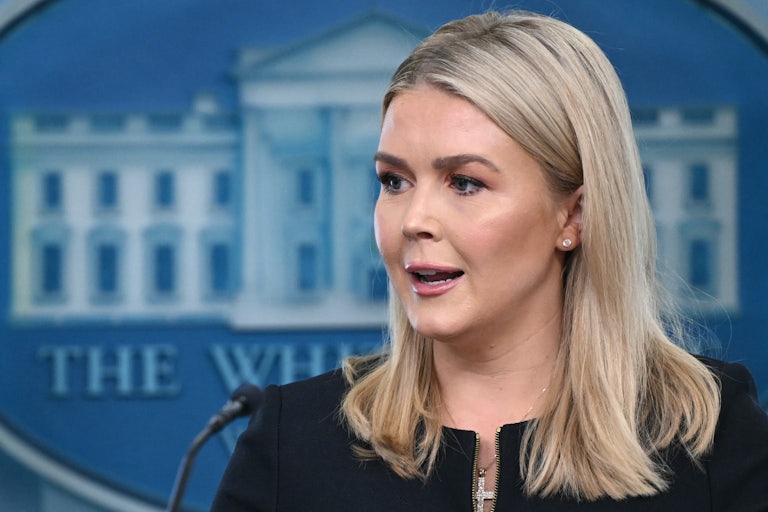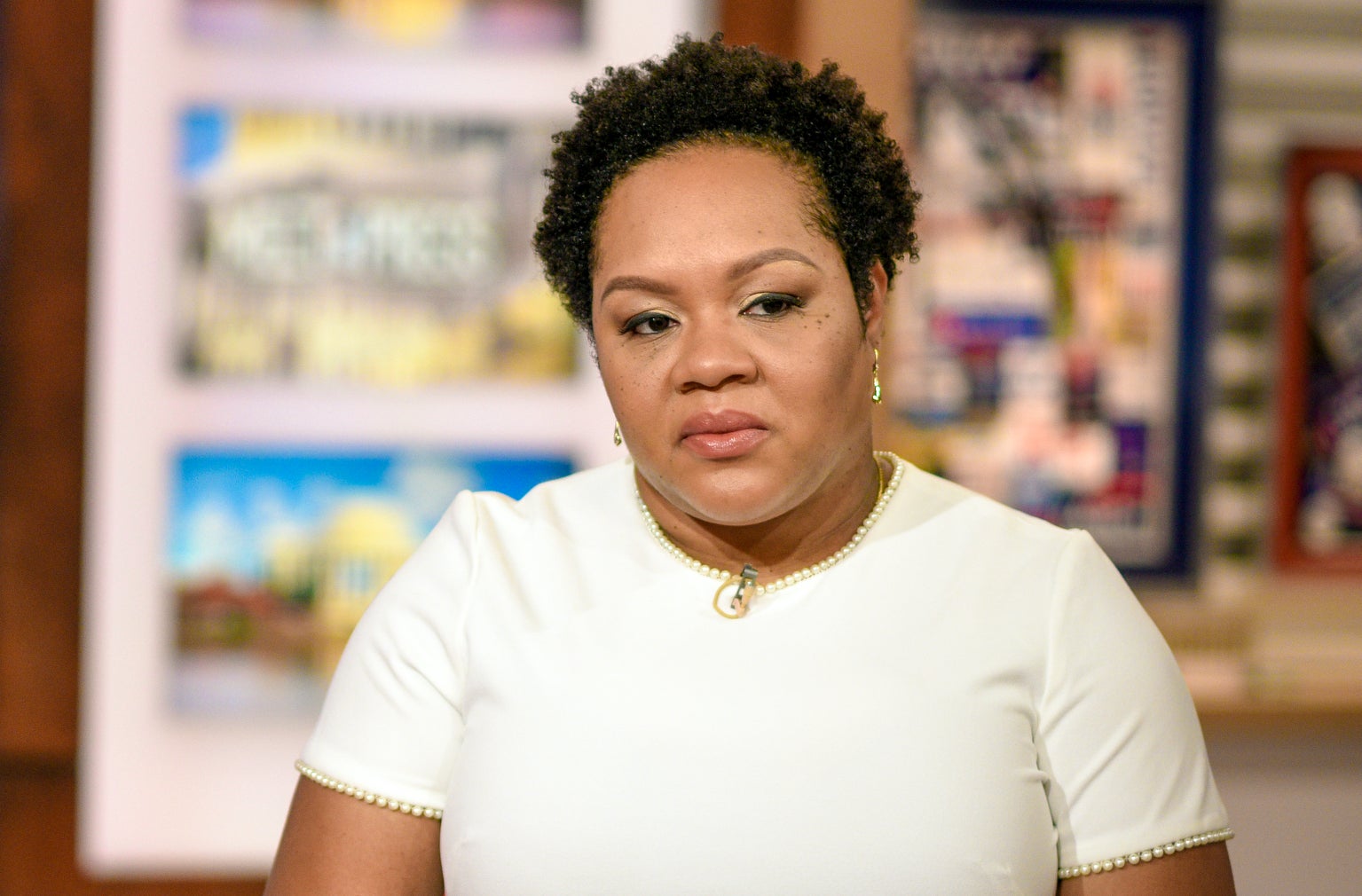“That’s Ridiculous”: Karoline Leavitt’s Fiery Clash with NBC Reporter Sparks Debate
In a heated exchange during a recent White House press briefing, Press Secretary Karoline Leavitt sharply rebuffed an NBC reporter’s question, labeling it “ridiculous” and igniting a firestorm of reactions across media platforms and social circles. The confrontation, which took place on May 23, 2025, centered on a controversial video shown by President Donald Trump during a meeting with South African President Cyril Ramaphosa. The incident has not only highlighted the ongoing tensions between the Trump administration and the press but also reignited debates about misinformation, race, and international relations. This article delves into the details of the exchange, its context, and the broader implications for political discourse in the United States.

The Context of the Clash
The confrontation stemmed from a meeting between President Trump and South African President Cyril Ramaphosa, where Trump presented a video he claimed depicted evidence of a “genocide” against white farmers in South Africa. According to reports, the video showed white crosses, which Trump described as marking “burial sites” for white farmers, suggesting widespread persecution. However, NBC News reporter Yamiche Alcindor challenged this narrative during the press briefing, pointing out that the crosses were symbolic, representing a single slain couple, and not indicative of a broader genocide. Data from South African police and Afrikaner organizations, compiled by Reuters, confirms that only eight white farmers were murdered in South Africa in 2024, accounting for less than 1% of the country’s total murders that year.
Leavitt, defending the president’s claims, responded with visible frustration. “The video showed images of crosses in South Africa about white farmers that have been killed and politically persecuted because of the color of their skin,” she said, talking over Alcindor. “Those crosses are representing their lives, and the fact that they are now dead, and the government did nothing about it.” Her sharp retort, calling the reporter’s question “ridiculous,” was captured in a viral clip that has since garnered significant attention, with some praising her boldness and others criticizing her dismissive tone.
Leavitt’s Role as Press Secretary
At just 27 years old, Karoline Leavitt made history as the youngest White House Press Secretary when she assumed the role in January 2025. Known for her staunch defense of President Trump’s policies, Leavitt has become a polarizing figure in the media landscape. Her confrontational style, often marked by quick-witted responses and a refusal to entertain questions she deems biased, has earned her both admiration and ire. Supporters view her as a refreshing voice who challenges the mainstream media’s narrative, while critics argue she deflects legitimate inquiries with aggression and misinformation.

This particular exchange with Alcindor is not an isolated incident. Leavitt has had similar run-ins with reporters, including a notable clash with Associated Press reporter Josh Boak over tariffs in March 2025, where she called his question “insulting” for questioning her economic knowledge. Another incident in June 2025 saw her dismiss a question from NOTUS reporter Jasmine Wright about Trump’s stance on protests as “stupid,” further cementing her reputation for fiery rebuttals. These moments have fueled a narrative among detractors that Leavitt prioritizes loyalty to Trump over substantive engagement with the press.
The Video and Its Implications
The video at the heart of the controversy has been a lightning rod for criticism. During the Oval Office meeting, Trump claimed the crosses represented “approximately 1,000” white farmers killed in South Africa, a figure that vastly exaggerates the documented data. South African President Ramaphosa pushed back, pointing to white members of his delegation, including golfers Ernie Els and Retief Goosen, as evidence that no genocide was occurring. “If there was a genocide, these three gentlemen would not be here,” he reportedly said.
The White House has since doubled down, with a spokesperson claiming “extensive evidence” of persecution, citing testimonials from white South Africans brought to the U.S. as part of a Trump administration refugee program. However, critics argue this narrative misrepresents the situation in South Africa, where land reform and racial tensions remain complex but do not equate to systematic genocide. The incident has sparked broader discussions about the Trump administration’s approach to foreign relations and its tendency to amplify controversial claims without robust evidence.
Public and Media Reactions
The exchange between Leavitt and Alcindor has polarized observers. On social media platforms like X, supporters of Leavitt celebrated her response, with posts describing it as a “savage clapback” that “obliterated” the reporter. One user wrote, “Karoline Leavitt just obliterated a fake news reporter calling her question ‘ridiculous.’ She’s so good at this.” Conversely, critics condemned her tone as unprofessional and dismissive, with one X post stating, “What’s the matter Karoline, can’t answer a question without being a blistering twit about it?”

Mainstream media outlets have also weighed in. The Independent and Yahoo reported on the clash, emphasizing Alcindor’s attempt to fact-check Leavitt in real-time. Some outlets praised Alcindor’s tenacity, with viewers on X calling her a “bad a** truth seeker” for pressing Leavitt on the video’s accuracy. Others, however, defended Leavitt, arguing that the reporter’s question was designed to trap her rather than seek clarity. Fox News, in particular, framed the exchange as Leavitt “pushing back” against a biased media narrative.
Broader Implications
This incident underscores the fraught relationship between the Trump administration and the press. Leavitt’s confrontational approach reflects a broader strategy of challenging media credibility, a tactic Trump has employed since his first term. By dismissing questions as “ridiculous” or “stupid,” Leavitt reinforces the administration’s narrative that the mainstream media propagates “fake news.” However, this approach risks alienating journalists who seek to hold the administration accountable, potentially eroding public trust in both the press and the government.
Moreover, the focus on white farmers in South Africa raises questions about the administration’s priorities in foreign policy. Critics argue that amplifying unverified claims of “genocide” distracts from more pressing diplomatic issues and inflames racial tensions both domestically and internationally. The controversy also highlights the challenges of combating misinformation in an era where viral videos and social media posts can shape public perception more rapidly than factual reporting.
Leavitt’s Public Persona
Leavitt’s tenure as press secretary has been marked by a blend of confidence and controversy. Her defenders argue that her youth and energy make her an effective communicator for Trump’s agenda, capable of countering media bias with poise. However, her critics, particularly on platforms like Reddit, describe her as “unbearable” and accuse her of relying on scripted responses rather than engaging substantively with questions. One Reddit user remarked, “She’s mocked for having one mode: perpetual tight-lipped outrage, as if she wants to call management on literally every person she meets.”
Her personal life has also come under scrutiny, with social media users mocking her marriage to a man significantly older than her and questioning her qualifications. While such criticism often veers into personal attacks, it reflects the intense public fascination with Leavitt’s role as a young, prominent figure in a high-stakes political environment.
Conclusion
Karoline Leavitt’s clash with an NBC reporter over a controversial video is more than a fleeting moment of political theater. It encapsulates the broader dynamics of the Trump administration’s relationship with the media, the challenges of addressing complex international issues, and the power of viral moments to shape public discourse. While Leavitt’s supporters see her as a fierce defender of truth, her critics view her responses as evasive and divisive. As the youngest press secretary in history, Leavitt’s tenure will likely continue to be a lightning rod for praise and criticism, reflecting the polarized state of American politics in 2025.